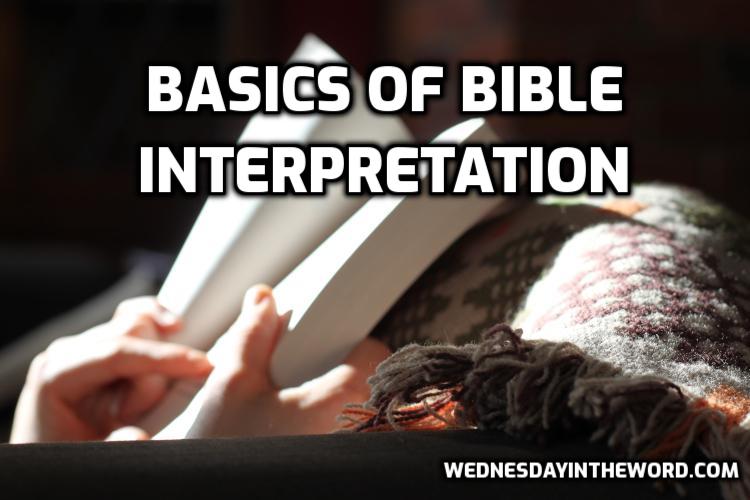I recently re-visited the first book I ever read on how to study the bible: Bob Smith’s Basics of Bible Interpretation. My paper copy was published in 1978, but the book is now available for free online.
Though the language and examples are sometimes dated, this book stands the test of time. If anything, it is more relevant today than ever, as the art of expository bible teaching has become an endangered species in our instant society.
Consider these points from chapter 3 about the goal of Bible study:
Sermonizing is not Bible study.
Sermons are often emotional, motivational appeals to action. Teachers frequently springboard off the language of the text, diving deep into platitudes and catchy stories designed to inspire and motivate us to the chosen call of action. At their worst, they have nothing to do with the passage of Scripture read. As Smith writes: “The speaker wheeled back and forth like an eagle over the text but he never came to rest upon it.”
Whipping up three or four good exhortations from a text is not Bible study.
Exhortations are great, as long as they come from the passage at hand. Often they are merely calls to action and repentance. As Smith writes: “After the text was read there issued a torrent of words exhorting us to five different things. God knows that we needed at least ten exhortations, but God also knows that the relationship of the text to the exhortations was completely accidental.”
Academic exegesis is not Bible study.
While most sermons today don’t regale us with their understanding of the aorist or the jussive, they often regale us with their scholarly analysis of popular culture, psychology and research statistics. Again, impressive but not the goal of bible study.
Propagandizing is not Bible Study.
Smith wrote it best: “Like the fingers of the pianist race up and down the keyboard, so his fingers raced through the Bible finding the relevant verses. Plunk, ping, plunk! It did not take long before I realized we were not having Bible study but a party line. The Bible was a keyboard and the teacher was playing his own tune upon it.”
Pious observations are not Bible study.
“The poor man of God does everything but explain the text. I got 30 minutes of various and diverse unrelated and uninspiring pious observations. Each observation was a worthy one. But the passage itself remained untouched. We had been all around the text but never in it.”
Smith concludes:
The actual goal of Bible study is to convey the meaning to the people of a set number of verses. …. The heart of Bible study must always be the matter of meaning. The first question of Bible study is not: “What is devotional here?” nor “What is of practical importance here?” nor “What is inspirational here?” but “What does this passage mean?”
If you’re looking for a summer refresher course on Bible study or to begin learning how to study, Basics of Bible Interpretation by Bob Smith is still a good choice.
Want more?
When you finish Bob Smith’s book, here are a few more good choices.
Knowing Scripture, by RC Sproul is designed to help people master the basic rules of biblical interpretation.
How to Read the Bible for All It’s Worth, by Gordon Fee & Douglas Stuart – this is a must have resource; no Bible student should be without and it now comes as an e-book. Re-read the chapter for your particular type of passage when you start a new study.
How to Get the Most from God’s Word by John MacArthur; free on archive.org
Living by the Book (Book and Workbook) by Howard G Hendricks & William Hendricks – also available as an ebook and a video series. Don’t be intimidated by the size of the book. The writing is clear and engaging and you will learn a lot.
Living by the Book by Howard G. Hendricks. Available free on archive.org.
The Joy of Discovery in Bible Study by Oletta Ward – a classic resource for small groups to work through together; teachers guide is also available.
The Joy of Discovery in Bible Study by Oletta Ward. Available free on archive.org.
The Language of God: A Commonsense Approach to Understanding and Applying the Bible by Ron Julian, J.A. Crabtree and David Crabtree — (out of print; but still can be found). This is a GREAT book for understanding the principles, methodology and philosophy of Bible study. The authors apply what they teach to a very difficult passage (James 5). The book is worth it just to understand James 5.
Photo by Alice Hampson on Unsplash

